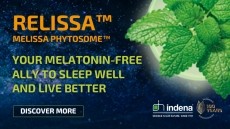Cocaine drink is a drug, not a supplement - FDA
drug, says the FDA, in a move sure to be welcomed by the United
Natural Products Alliance (UNPA).
In a letter from FDA to James Kirby of Redux Beverages, the company behind the product, the administration states: "According to information on your website, Cocaine is marketed as an alternative to an illicit street drug, and certain ingredients contained therein are intended to prevent, treat, or cure disease conditions." As such, "Your product, Cocaine, is a drug, because it is intended for use in the diagnosis, cure, mitigation, treatment, or prevention of disease. Moreover, this product is a new drug, because it is not generally recognized as safe and effective for its labeled uses." The FDA news is sure to be welcomed by the UNPA who stated last October that the drink was not a dietary supplement, as it is marketed on its website, and called for the federal government to take prompt action and assure what it called "illicit street drug sound-alike products" were not marketed as dietary supplements. The dietary supplement industry is regulated by the Dietary Supplement Health and Education Act (DSHEA), which is part of the Food and Cosmetics Act. Unlike pharmaceuticals, which must go through a series of pre-market approvals, finished dietary supplements need no pre-market approval. Instead, only ingredients not marketed in the US before October 1994 must be approved by FDA before being used in consumer products. FDA said that the energy drink, which does not contain any cocaine, is being marketed as an illicit street drug alternative, with statements on the product container including, "The Legal Alternative", "Speed in a Can", and "Cocaine - Instant Rush." The statement on the website about the inositol ingredient "... reduces cholesterol in the blood; it helps prevent hardening of the arteries, and may protect nerve fibers from excess glucose damage. Inositol has a natural calming effect and may be used in the treatment of anxiety, depression, and obsessive-compulsive disorder without the side effects of prescription medications," means that the product is intended to treat or prevent certain diseases, said FDA. And such a statement means the drink cannot be a dietary supplement, said the administration. "A dietary supplement may not bear claims that it prevents or treats a disease, except for authorized health claims about reducing the risk of a disease. Other disease prevention and treatment claims render the product a drug subject to the drug requirements of the Food, Drug, and Cosmetic Act (Act)," stated the letter. "You must immediately correct these violations. If you do not immediately correct them, you may be subject to enforcement action against you without further notice. The Act provides for the seizure of illegal products and for an injunction against the manufacturer and distributors of illegal products. Individuals and businesses that violate the Act may also be subject to criminal prosecution," stated the FDA letter. In response, Hannah Kirby, managing partner of Redux Beverages, told the Associated Press: "Obviously, we're not a drug. We pretty much have the identical ingredients of every other energy drink out there." Kirby told the AP that the company's attorneys had already begun discussions with the FDA about how to be compliant with federal law. The company's website is also being revised, she said. "Our take on it is we are naive. Everything that we do in terms of marketing of the products, on to all the various marketing taglines, is intended to be tongue-in-cheek," added Kirby. "We knew it would be controversial, we knew it would make us stick out. That was the idea." Redux has 15 working days to take corrective steps to amend the violations and to assure the administration that similar violations will not recur. Accusations have raged against the drink's name via media reports. Parents, politicians, retailers, lawyers and students have spoken out about a drink name they say has negative connotations to the narcotic bearing the same name and thus, they claim, could lead to young people snorting the real deal.













